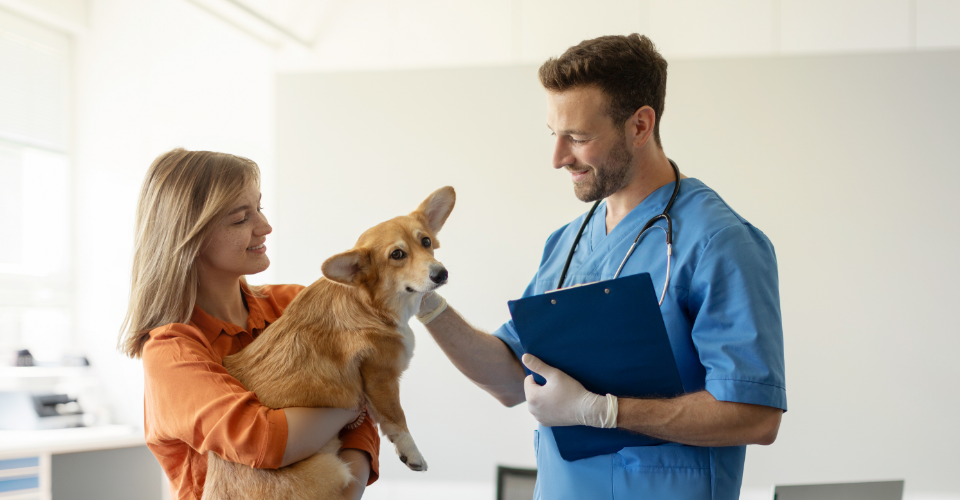Dr Corné Viljoen graduated from Onderstepoort in 2013 and is supported by an incredible team at Innovavet Veterinary Clinic.
What are the main indicators that a dog has anal gland issues?
“Common signs of anal gland issues in dogs include scooting, excessive licking or biting at the rear, a strong foul odour, pain or discomfort when sitting, redness or swelling around the anus, changes in bowel movements, and unusual behaviours such as restlessness or aggression. These symptoms may indicate that the anal glands are full, impacted, or infected and require veterinary attention.”
Which treatments are available for these issues?
“Treatment options for anal gland issues vary depending on the severity of the condition. A veterinarian will determine the best approach after a thorough evaluation. Manual expression is commonly used to relieve pressure in full or impacted glands, while antibiotics and anti-inflammatory medication may be prescribed for infections. In some cases, an anal gland flush can help clear debris or bacteria. Dietary adjustments, such as adding fibre, can aid natural expression, while steroids may be used to reduce inflammation. For chronic or severe cases, surgical removal of the glands may be considered as a last resort.”
Can pet parents express their pet’s anal glands at home?
“Yes, in some cases, pet parents can express their dog’s anal glands at home, though it’s not always recommended unless you’re comfortable with the process and have received proper guidance from a veterinarian. Improper handling can lead to injury, infection, or discomfort to the dog.”
Introducing Our Vet of the Month
Dr Corné Viljoen’s primary interest lies in pet healthcare, with a strong belief that prevention is better than cure. He’s dedicated to building lasting relationships with clients and is passionate about providing patients with the highest level of care and respect.
What inspired you to become a vet?
“I always wanted to be a veterinarian ever since I was a young boy. Since I can remember, I always had a deep love for animals and farm life. My parents also love animals, and we had many animals in and around the house when we grew up.”
Dr Corné, do you have any pets?
“Sometimes I feel like Dr Dolittle. I saved and treated some animals on the farm, and now they have a second chance at life on the farm. Others I bought or received as gifts. But they are all special and treated the same.”
Any last thoughts on the topic?
“If the anal glands are not causing problems and the dog isn’t showing any signs of discomfort or distress, there is generally no need to express them. Over-expression can also irritate the glands and may lead to further issues, so it’s best to avoid doing it unless it’s necessary. If you’re unsure whether the dog’s glands need to be expressed, a veterinarian can assess the situation and guide you on whether it’s necessary, and how often it should be done.”



